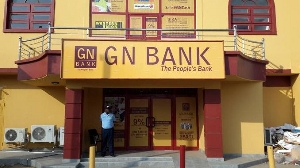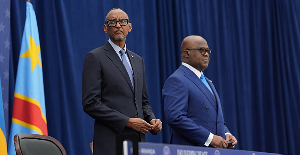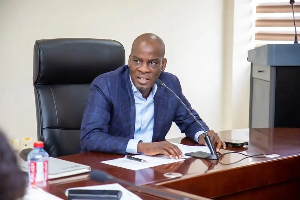The Ghana National Household Registry(GNHR), has urged inhabitants of Savannah Region not to be scared in giving out their Identity cards to their census enumerators in the ongoing data collection exercise on household registration.
Some citizens in the Bole and Sawla-Tuna-Kalba Districts in the Savannah Region are said not to be cooperating with the officials of GNHR over the banter between the NDC and NPP over the Nasara wing research on the performance of Government in the last three and half years.
The NDC perceived that the NPP has a plan to delete names of electorates from the voters register by their actions of their Nasara wing compiling names of electorates in the area. This action has scared the citizens to be reactant in giving out their ID’s to the census enumerators.
Speaking on Yagbon Radio Teacup on Monday, August 24th, 2020, the Sawla-Tuna- Kalba Census Officer, Mr Jimah Hanson Esau, said the citizenry should not be scared because their voters' ID number is not their interest but the name on the lDs.
He explained that aside from the voters' ID they also need either an ECOWAS card or NHIA card. The purpose of this is to capture the name of the individual correctly to reflect the national database.
Mr Hanson added that their enumerators wear the GNHR green or white T-Shirt with GNHR ID.
According to Hanson, there are reports of residents not cooperating with enumerators especially Kalba where he has to intervene to resolve that issue.
Mr Hanson said this is a national exercise which started in 2016 by the Gender, Children and Protection Ministry covering the Upper East, Upper West, Northern, North-East and Savannah Region. He indicated that the Ministry has fully covered the Upper East and Upper West Regions while North-East, Northern and Savannah Regions were not covered.
This is an initiative by the Gender, Children and Protection Ministry to target the vulnerable in the country, he said.
The data captured will be used to identify locations of these venerable sites without asking of their locations, he explained.
So if you don’t give out your right name it will affect you later, Hanson noted.
The exercise which began on 1st July 2020, and expected to end in September, is in line with the government's policy to develop an integrated programme to incorporate all persons including children, persons with disability and other vulnerable groups into a common database aimed at poverty eradication in the country.
Regional News of Tuesday, 25 August 2020
Source: Ibrahim Wande Forgor, Contributor













